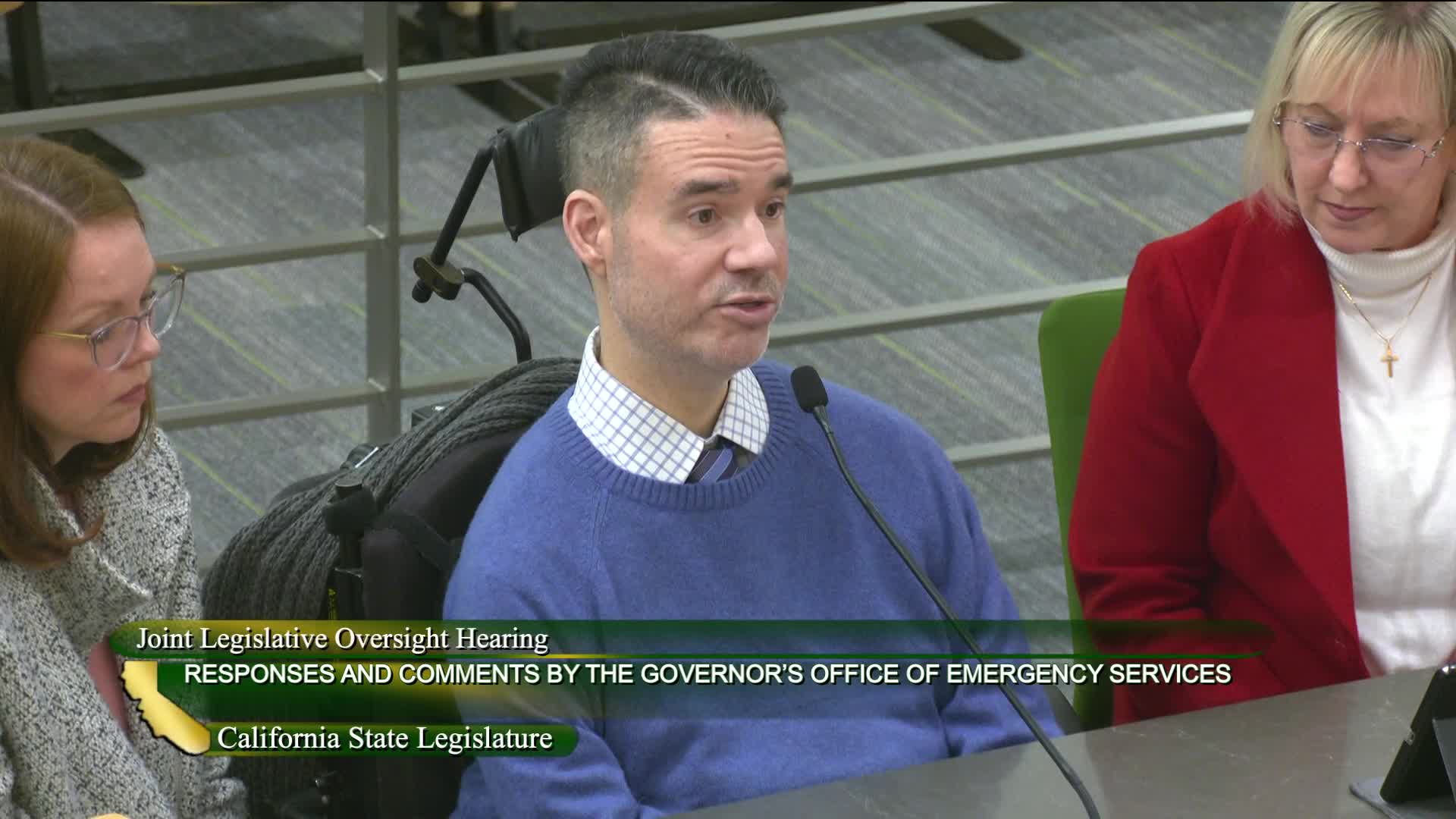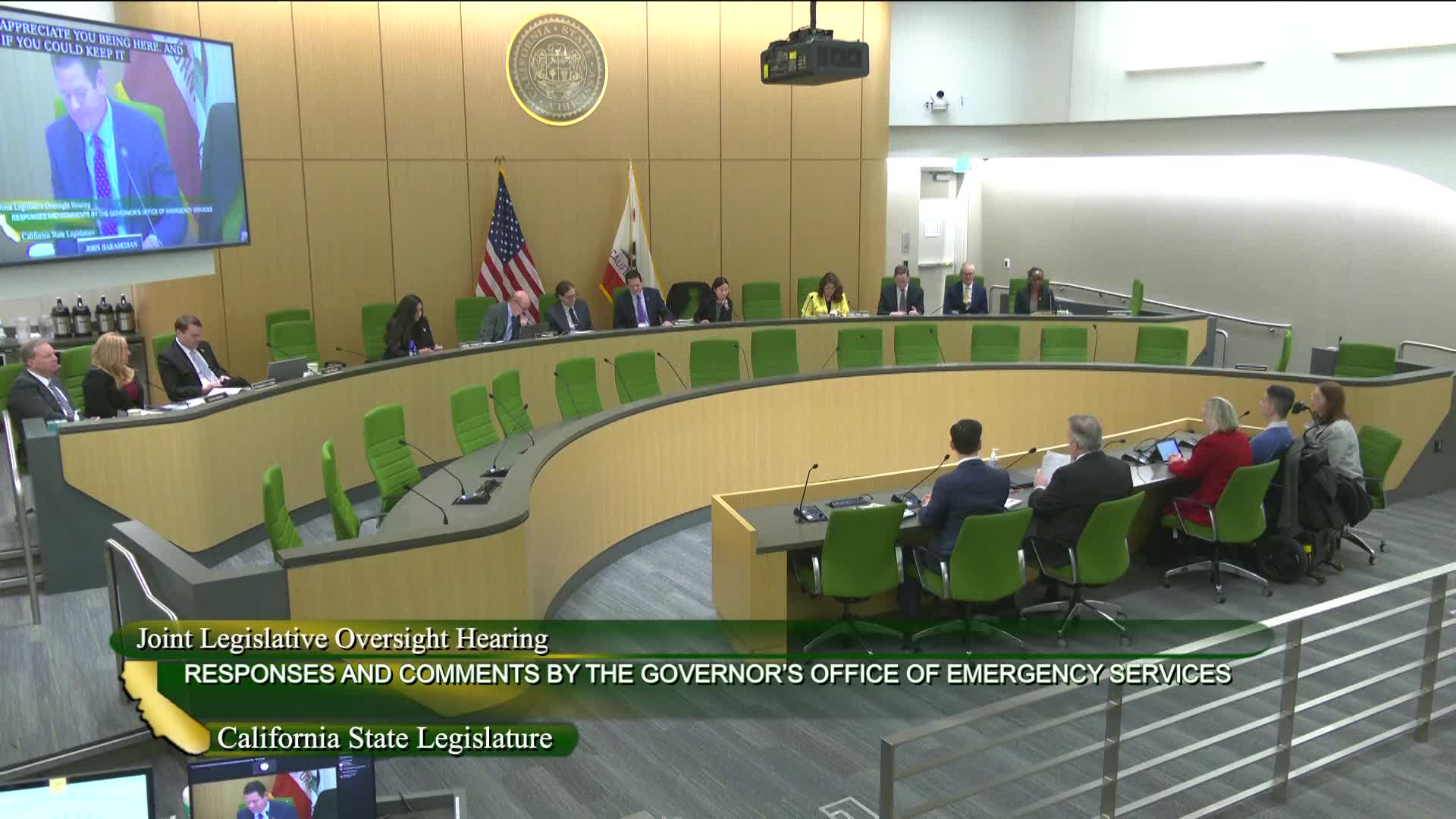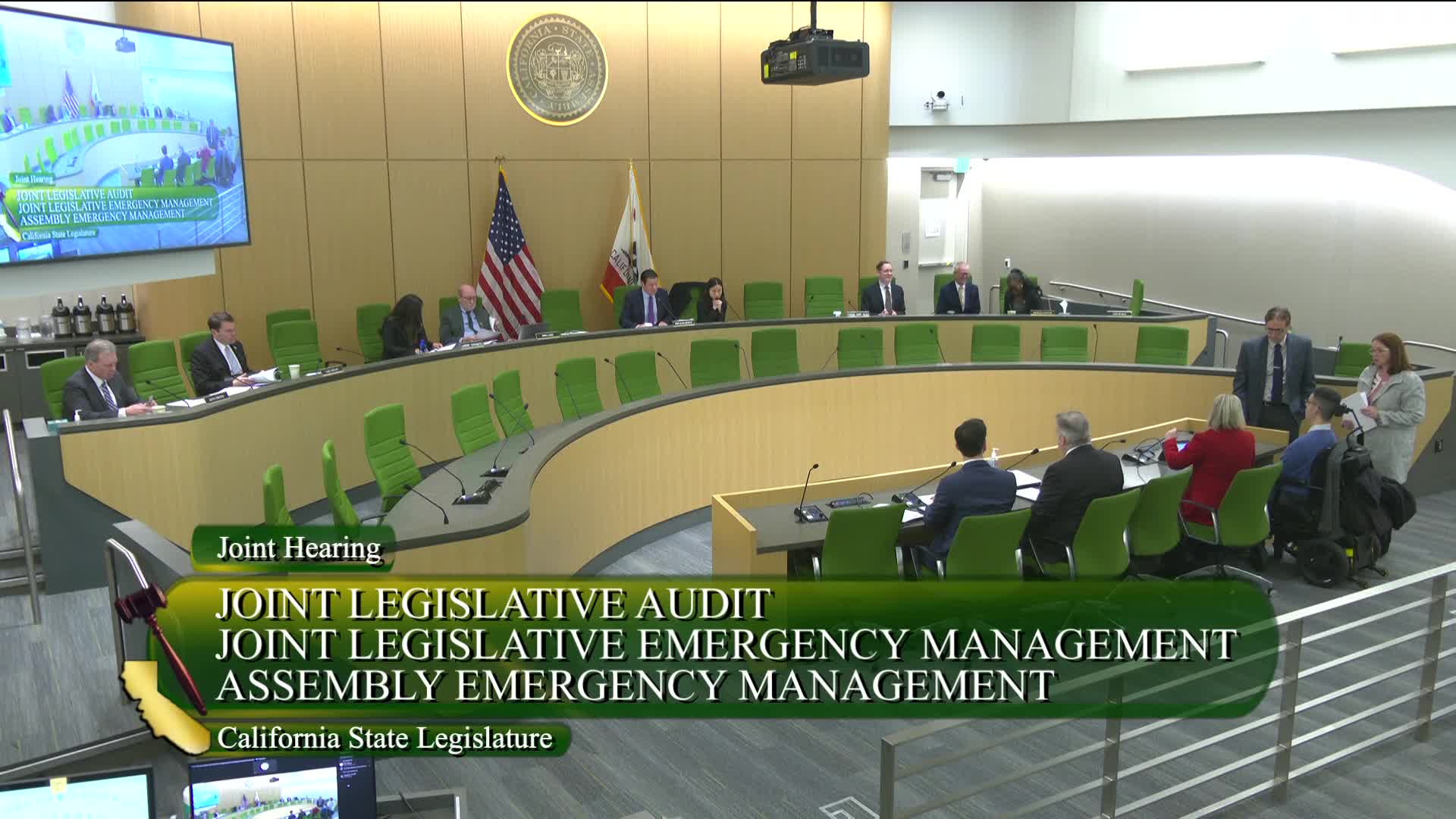Article not found
This article is no longer available. But don't worry—we've gathered other articles that discuss the same topic.

Commissioners, disability advocates and rural legal aid press for faster action on egress, registries, schools and language access

Cal OES outlines new AFN guidance, training and county reviews but officials acknowledge limits

